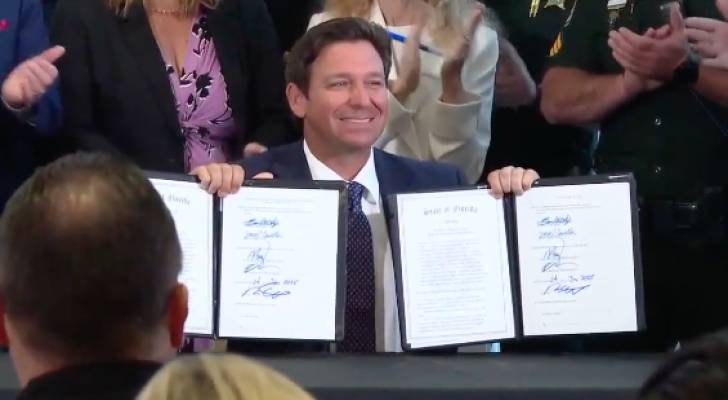New Laws Aim to Protect Commercial Property Owners from Squatters
Florida Governor Ron DeSantis has recently signed two new laws designed to protect commercial property owners from squatters. These measures are part of a broader initiative to address unauthorized occupancy and reinforce the rights of private property owners. The legislation is expected to have significant implications for businesses, especially those in the hospitality and retail sectors.
The passage of these laws follows previous efforts by Florida to tackle the issue of squatters, particularly for homeowners. However, the new laws extend similar protections to business owners, including hotel operators, restaurants, and other commercial entities. This shift highlights the growing concern over how squatters can disrupt operations and cause financial harm to businesses.
How the New Laws Benefit Commercial Property Owners
Senate Bill 322 is one of the key pieces of legislation aimed at streamlining the process of removing squatters from commercial properties. It grants law enforcement greater authority to act swiftly, allowing property owners to reclaim their spaces without enduring lengthy legal battles. Additionally, the bill helps safeguard against financial losses and property damage that may result from unauthorized occupants.
Senate Bill 606 specifically targets the hospitality industry, clarifying that guests who overstay their welcome cannot claim residency. This provision helps prevent disputes that could otherwise tie up business owners in protracted legal conflicts. For instance, a recent case in Sarasota involved a woman who repeatedly refused to leave the Westin Sarasota despite causing disturbances. The situation eventually required police intervention, underscoring the need for more effective solutions.
Governor’s Perspective on Property Rights
Governor DeSantis emphasized the importance of property rights as a cornerstone of economic stability. He stated that the legislation would help prevent minor issues from escalating into major landlord-tenant disputes. “Property rights are really important. If you don’t have private property rights, you cannot have a free society,” he said during a press conference.
State Representative Peggy Gossett-Seidman, who supported the legislation, noted that previous laws lacked the necessary strength to remove squatters in all cases. Sarasota County Sheriff Kurt Hoffman also highlighted the disruption caused by unauthorized occupants, stating that the new language defining “transient” individuals would make it easier for law enforcement to act.
Squatting: A Growing Concern
While squatting has gained attention in states like New York and California, its true scale remains unclear. An informal survey by the National Rental Home Council (NRHC) found that cities in Georgia, Florida, and Texas have some of the highest numbers of squatters. For example, Atlanta reported 1,200 squatters, while Dallas-Fort Worth had 475 and Orange County, Florida, around 125.
Despite limited data, high-profile incidents and viral videos have contributed to the push for legislative action. New York Democratic State Sen. Jessica Scarcella-Spanton argued that even a few cases of squatting are unacceptable. “Just seeing the cases that we’ve seen over the last couple of months in the news is reason enough to move forward with legislation,” she said.
Broader Implications and Concerns
Florida is not alone in addressing squatting. States such as New York, Alabama, and California have also introduced or passed bills to curb the issue, particularly when it affects homeowners and small landlords. However, some housing advocates express concerns that the new laws could be misapplied, potentially harming legal tenants who are unable to pay rent.
Despite these concerns, Florida’s new laws reflect the growing public demand for action and the willingness of lawmakers to respond quickly to emerging challenges. As the debate continues, the focus remains on balancing the protection of property rights with the need to ensure fair treatment for all residents.



